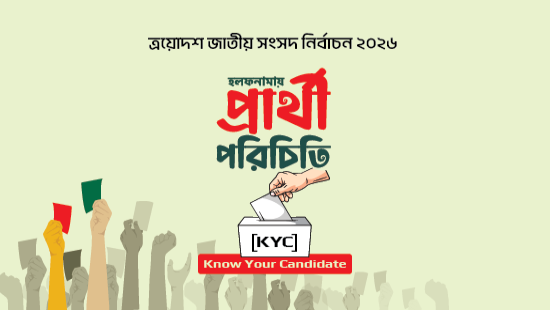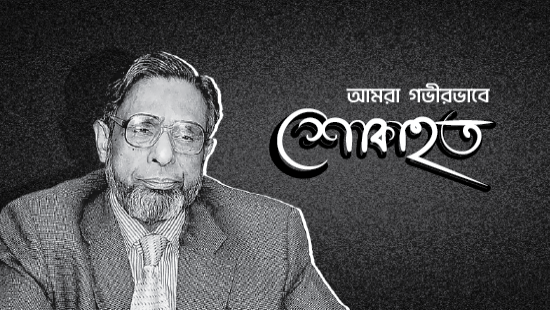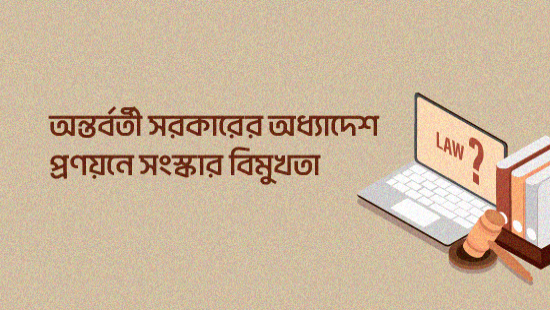Press Release
Dhaka, 14 October 2025: Transparency International Bangladesh (TIB) has expressed concern over the decision to keep military officers, who have been accused by the International Crimes Tribunal of enforced disappearances, extrajudicial killings, and torture during the fallen authoritarian regime, in military custody inside cantonments. cantonments. This decision is questionable in light of constitutional commitments and the principle of equal application of the law. TIB has called on the government to clarify the rationale and considerations behind the decision to treat military officers accused of crimes against humanity differently from other accused persons. Emphasizing the fundamental principle that “all are equal before the law,” the organization has strongly urged the government to immediately withdraw this discriminatory decision.
In a statement, TIB Executive Director Dr. Iftekharuzzaman said, “How can discrimination based on identity or position be acceptable in cases involving the same allegations? In the trial process of individuals accused of crimes against humanity, there is no scope to consider professional identity or rank. Granting or assessing anyone with special privileges in this way goes against the principle of justice. If other accused persons can be held in civilian custody under regular procedures, what is the justification for establishing specialized sub-jails for accused military officers? Will the government then offer as many types of sub-jails as there are professional or institutional identities among the accused from state and non-state sectors? This discriminatory behavior by the government will call into question the judicial process of the International Crimes Tribunal, creating the risk of public confusion regarding the government’s intentions, particularly among victims and their families. Effective measures must be taken to ensure that there is no scope for even the slightest doubt about the impartiality and transparency of the trial process.”
Dr. Iftekharuzzaman further stated, “According to Article 27 of the Constitution of Bangladesh, which guarantees ‘equality before the law,’ and under the basic principles of relevant international law, no person accused of crimes against humanity is entitled to any special privilege—this applies equally to members of the armed forces. Moreover, Bangladesh is a signatory to the Rome Statute of the International Criminal Court. Article 27 of the Statute (Irrelevance of Official Capacity) clearly states that individuals shall not be exempt from criminal responsibility or receive special treatment in legal proceedings because of their political or military status. Similarly, Principle 3 of the Nuremberg Principles—which serve as the foundation of international law on crimes against humanity—establishes that official position or duties shall not be considered grounds for immunity. This applies regardless of what may be stated under relevant national military laws; they do not apply to those accused of crimes against humanity.”
Furthermore, Bangladesh is a signatory to the International Convention for the Protection of All Persons from Enforced Disappearance (ICPPED), a UN convention under which the government has committed to ensuring justice for victims. TIB believes that in such trial processes, there is no scope to consider the professional or institutional identity, rank, or social status of the accused.
Referring to the example of a former military officer accused of crimes against humanity, Dr. Iftekharuzzaman said, “In some cases, the army arrested the accused at the airport and handed them over to the police, which we consider a positive precedent. That individual is currently detained under civilian control. Therefore, why are other accused military officers required to remain in military custody? The military authorities and the government must provide an explanation. Such arbitrary behavior will cast doubt in the public mind regarding the government’s sincerity in ensuring justice for the victims.” "All parties involved must ensure that accountability for crimes against humanity, such as enforced disappearances, killings, and torture, is secured in accordance with constitutional commitments and internationally recognized procedures." The opportunity for exemplary justice, achieved through immense sacrifice, must not be undermined by discriminatory behavior that grants special privileges to a particular group, Dr. Zaman added.
Media Contact:
Mohammad Tauhidul Islam
Director, Outreach and Communication
Phone: +8801713107868
Email: tauhidul@ti-bangladesh.org







